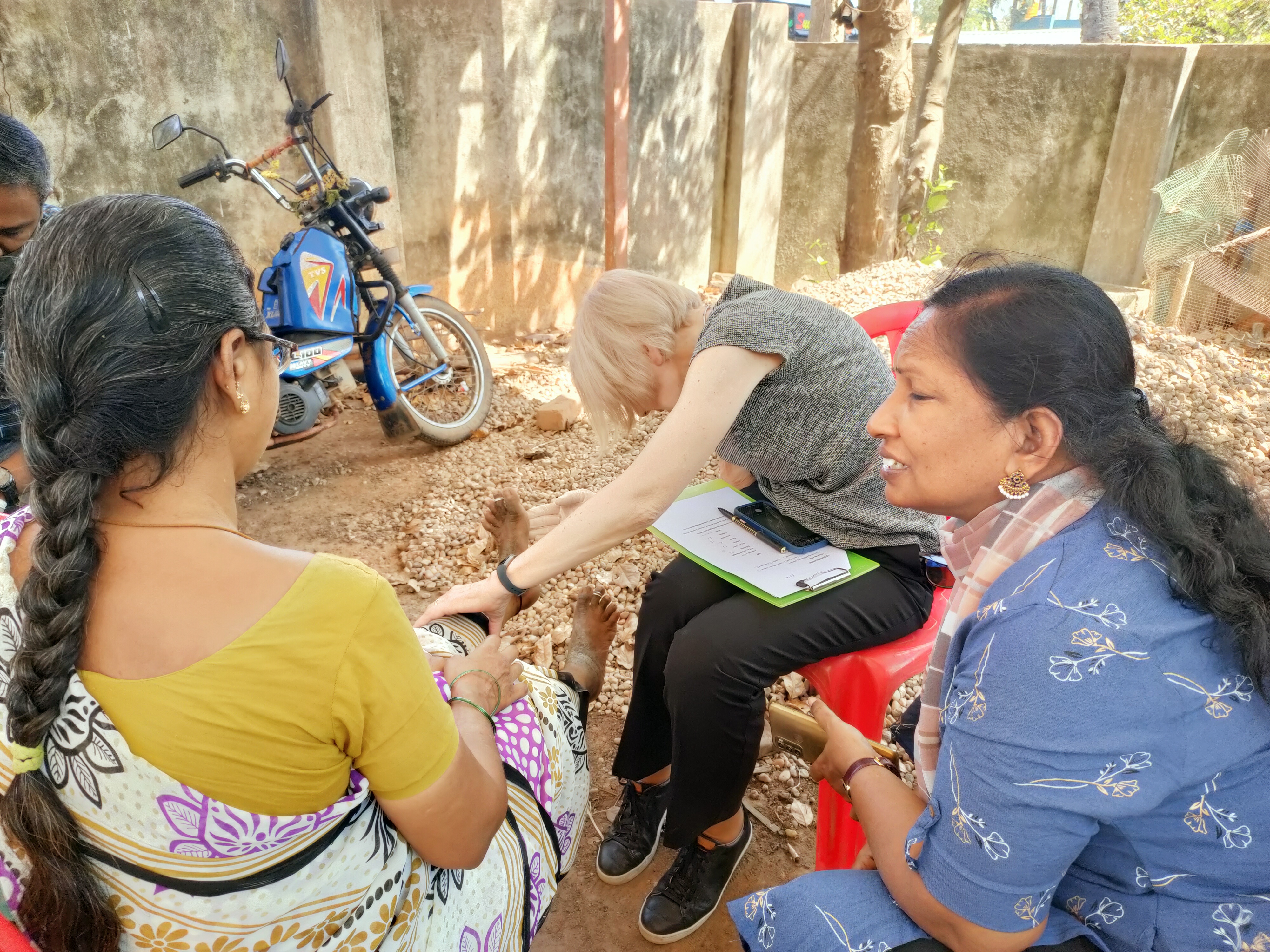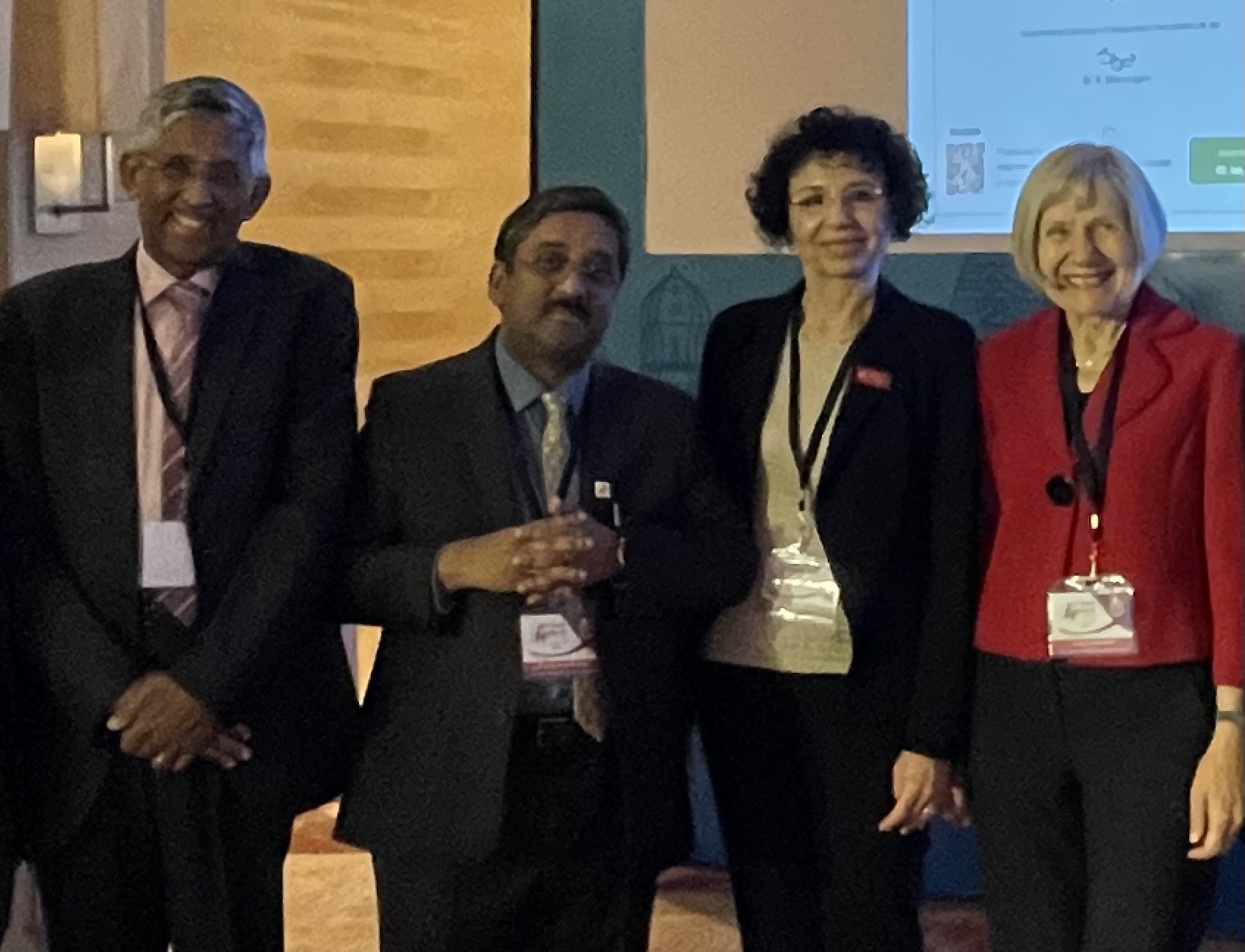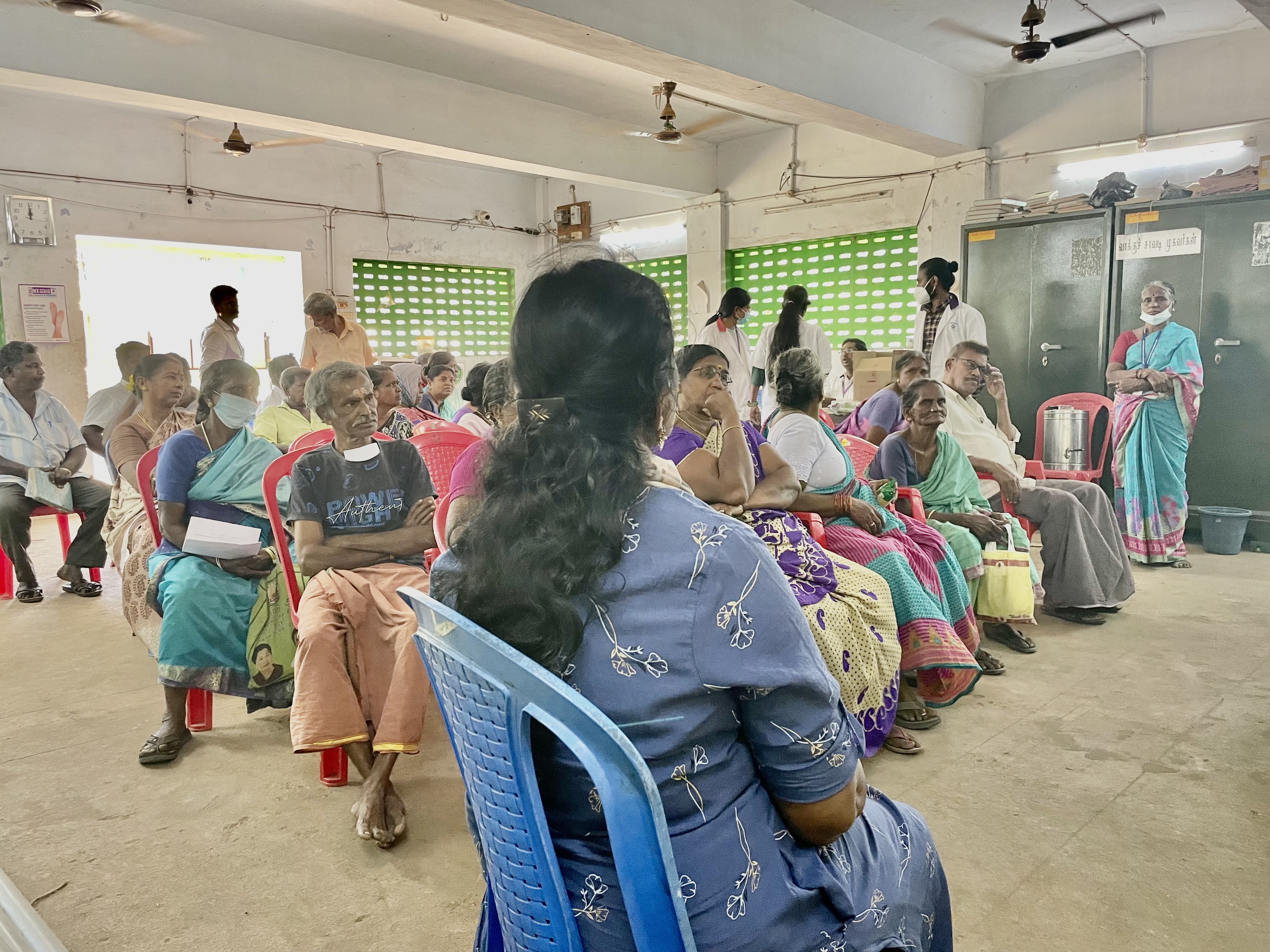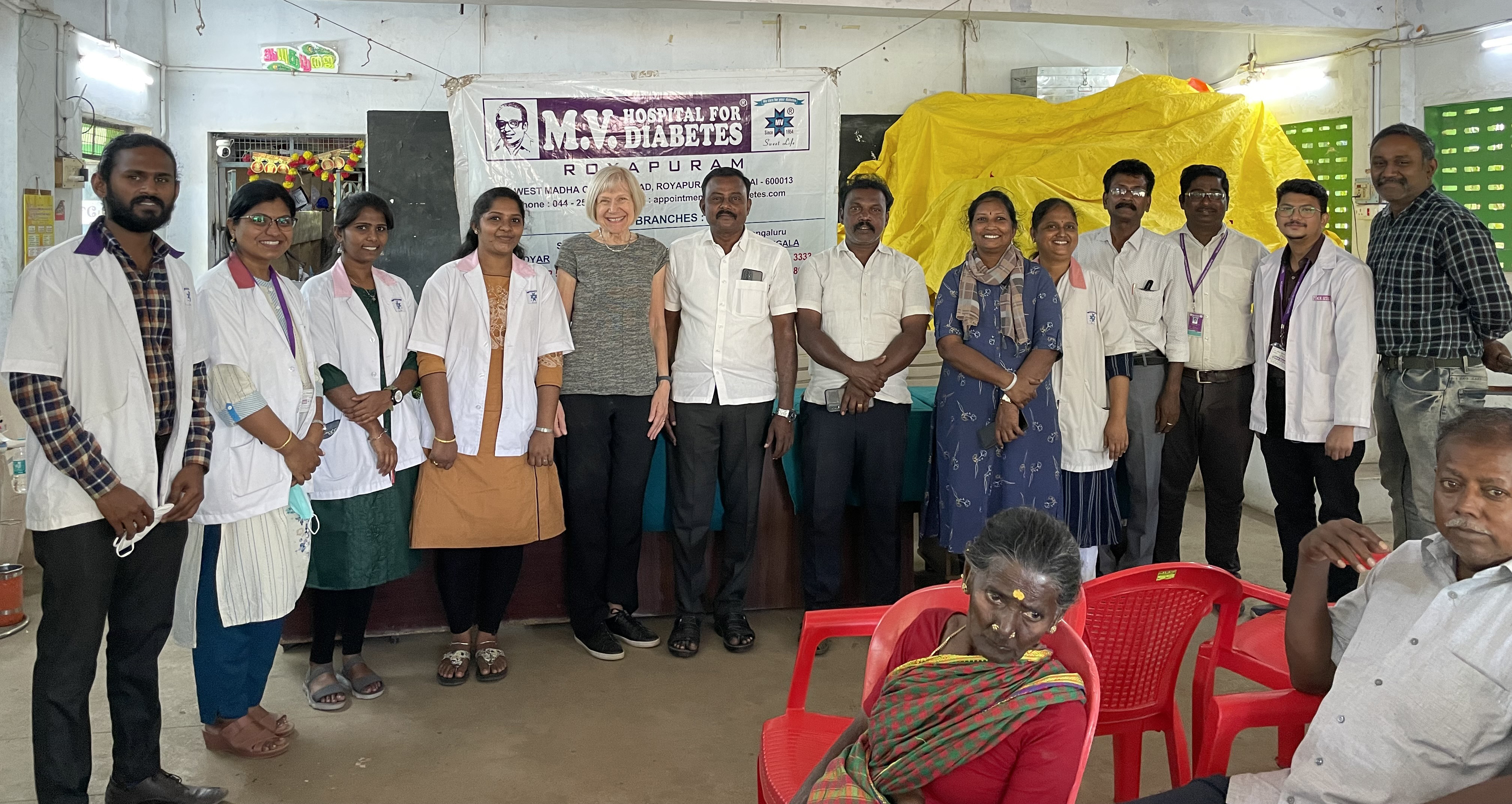
The beginning of an important friendship:

This transformative partnership began almost a decade ago when Dr. Viswanathan invited Dr. Eva Feldman to give a plenary talk at a conference he was organizing on diabetes and its complications. During a tour of his hospital, they discussed their mutual interest in diabetes and its complications and began to work together the next year.
Now, for over seven years, this joint venture has been studying the unique set of circumstances in India and what is behind an increase in complications from diabetes and obesity, particularly neuropathy and cognitive decline, to find new modes of treatment tailored specifically to the local population.
Returning in 2023:
This past month, Dr. Feldman returned to Chennai, with Brian Callaghan, M.D., M.S., to begin the next phase of this work and speak at the International Diabetic Foot Conference, along with colleague and current American Diabetes Association President-elect Rodica Pop-Busui, M.D., Ph.D.
While there, they also devoted time to work at “camps” (public clinical sessions) to provide care and inform underserved communities about diabetes, its prevention, and treatment. Dr. Feldman was struck by the kindness, appreciation, and interest of the local residents who attended.
Why India?
Why the focus on India? Because India has by far the world’s largest percentage of vegetarians, and vegetarians generally make us think of lean and healthy people.

However, in fact, diabetes, obesity, and hypertension are dramatically increasing in India, with most cases undiagnosed or undertreated. Estimates in 2019 showed that 77 million people in India are living with diabetes, which is expected to almost double to over 134 million by 2045. Associated with diabetes are a host of debilitating complications, including blindness, kidney problems, neuropathy, and cognitive decline.
Alzheimer’s disease and Alzheimer’s disease-related dementias (AD/ADRD) are also becoming more common in India. It’s estimated that 3 million people have AD or related dementias, with that number expected to increase at an alarming rate.
Establishing the Chennai Complication Cohort:
In 2014, when Dr. Feldman began her collaboration with Dr. Viswanathan, they established the Chennai Complication Cohort (CCC) to better understand the factors underlying neuropathy and cognitive decline in India and to test the idea that central obesity (around the midsection), not general obesity, is associated with these conditions.

The results so far of the research have proven surprising and not what is commonly seen in American populations. Notably, they did not find the same association between waist circumference and neuropathy that would be expected. A possible explanation is the high prevalence of people who are thin-fat (central obesity without general obesity) in India, which may not be captured with usual measurements, like BMI. Furthermore, while fat in the blood has been shown to be associated with neuropathy in the U.S., no studies have been done on this relationship in a vegetarian diet.
Over three years, the CCC team recruited 652 study participants for a hospital-based cross-sectional study, which included comprehensive metabolic phenotyping and neuropathy outcome measures. The findings revealed that neuropathy was significantly associated with diabetes and age for this cohort of patients.
Ramping up—the next phase:
The next phase of this partnership is a population-based study of 1,000 participants from four zones in Chennai and two in the nearby Tiruvallur district. The zones have been selected so that two are predominantly urban poor, two urban middle class, and two peri-urban (an area adjacent to a large city). A mix of urban and peri-urban zones was chosen because risk factors differ between these communities.

Urban communities have a higher prevalence of metabolic risk factors, such as hypertension, but patients in peri-urban communities are less likely to be diagnosed and treated appropriately. Furthermore, peri-urban communities have lower literacy rates, socioeconomic status, nutritional status, and healthcare access, whereas urban communities have a more sedentary lifestyle.
In all these individuals, a variety of assessments will be made, including blood sugar levels, lipid levels, blood pressure, weight, height, measures of central obesity, and body mass composition. Cognition will be assessed, and patients will be screened for neuropathy. The goal is to determine the metabolic risk factors and the underlying mechanisms for these neurologic complications so that we can pinpoint new treatments for neuropathy, as well as cognitive decline, specifically Alzheimer’s disease and related dementias.
The results will certainly result in better outcomes for patients in India, but the findings will also inform modes of treatment in the U.S., making for a healthier globe for us all.
